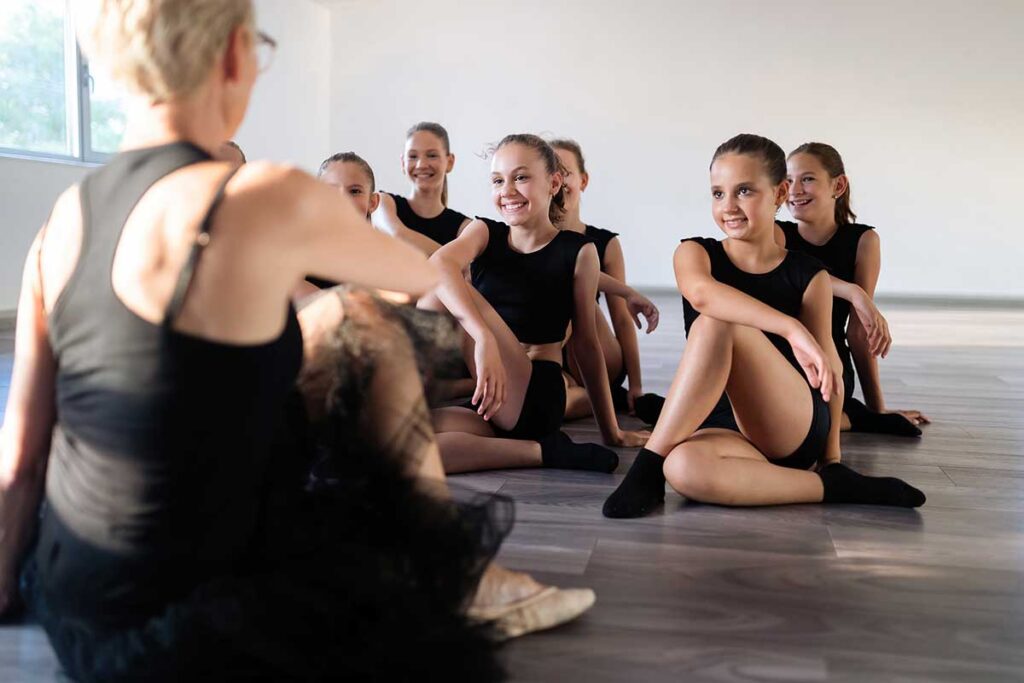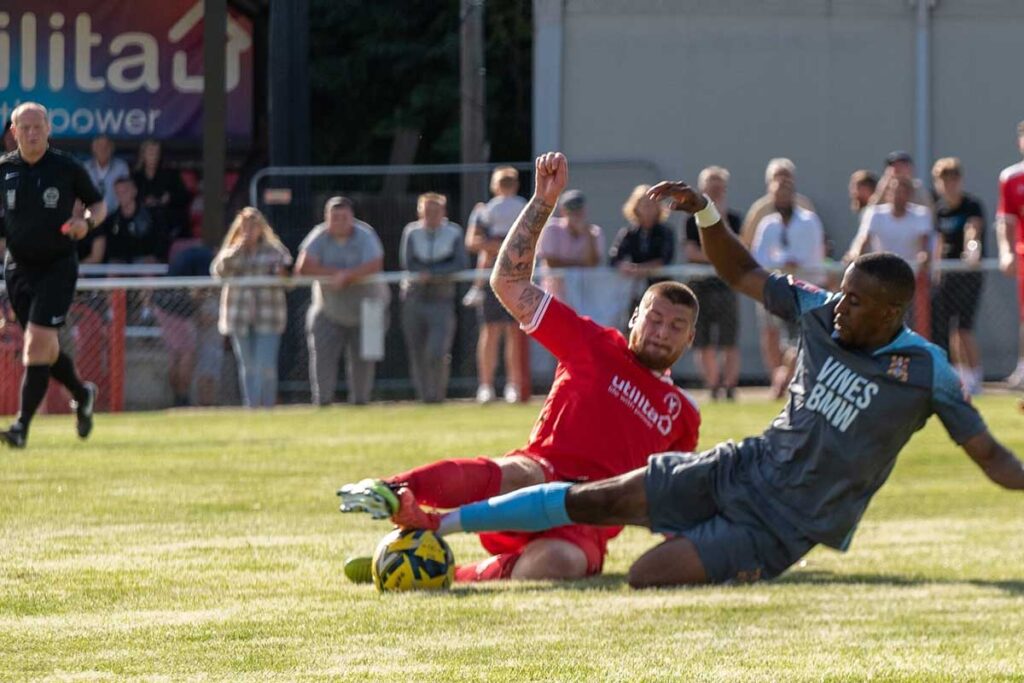Are you a sports or activity club looking to find new ways to secure funding?
We recently hosted a webinar with Richard Sutcliffe, Director of Funding 4 Sport. From identifying the most accessible grants available to hints and tips on the most successful ways to apply them – the webinar was jam-packed full of funding advice.
Keep reading to discover ways to secure funding and top tips for applying.
Who can apply for funding?
Before going into details about how to get funding for your club, it’s important to identify who is able to receive these grants. Most funding will be allocated to voluntary and community clubs.
Here is an overview of the types of organisations that are eligible:
A voluntary or community organisation that’s constituted group or club
These are clubs that have a chairman, treasurer and secretary.
Registered charity
This is an organisation that’s established for charitable purposes only.
Charitable incorporated organisation (CIO)
This is a corporate body which is not a company incorporated under the Companies Acts.
Not-for-profit organisation
These are just non-profit companies that aren’t charities as they exist to benefit their members rather than the community.
Community interest company (CIC)
This is a special type of limited company which exists to benefit the community rather than private shareholders.
Schools
Schools can only qualify for funding if your project benefits the surrounding community.
Statutory body
This includes local authorities, town parishes and community councils.
Who can’t apply for funding?
If your club or organisation makes a profit then it’s unlikely you’ll get funding from a grant. Here is a list of who usually can’t apply for funding:
- Individuals
- Sole traders
- Organisations based outside of the UK
- Companies that can pay profits to directors, shareholders or members
- A commercial / for-profit company
- An organisation with less than 3 people on its governance or committee
However, you can get around this in a couple of ways. As Richard says, you can “… either change, which is very difficult to do, or set up a separate organisation that is not for profit.”
You can also partner with a local community centre and subsequently partner with several schemes that the centre is running. So for example, a local community centre could work with an individual who runs yoga or pilates classes and ask them to run classes for the elderly or those affected by early-onset dementia. This would be beneficial to the community and could be applied for via the community centre.
Funding streams
During the webinar, Richard focused on two main funding streams. These were the National Lottery and the Queen’s Platinum Jubilee Activity Funding which is run through Sport England.
We break down in more detail what the eligibility requirements are for both grants below.
National Lottery fund
With the National Lottery grant, you can apply for funding ranging from £300 to £10,000. As Richard explained, the current turnaround time for grant applications is four to six weeks, but you can apply at any time, so deadlines aren’t looming.
To qualify for National Lottery funding, you need to make sure you tick at least one criteria box. There are three main success factors your project should deliver to get your application approved.
Bring people together and build strong relationships in and across communities
Richard says that “As clubs, you’re doing that all the time. You’re bringing people together, whether that’s as part of a team or whether that’s parents or volunteers. That’s what sports clubs do.”
Improve places and spaces
For example, this could be smartening up a clubhouse to make it more appealing to community groups.
Enable people to fulfil their potential
If your club works with vulnerable members of the community then you can show how it improves their quality of life.
What can be funded by the National Lottery grant?
So, what exactly can you spend the National Lottery grant money on?
Here’s a breakdown:
Staff salaries
For example, coaches, sessional workers, and trainers.
Project activities
Such as costs towards a community event or healthy living training and resources.
Running costs
This could include things such as venue hire, marketing and transport costs.
Small-scale refurbishment
For example, paint to brighten up the clubhouse or to cover the costs of new furniture.
Equipment
Small, unfixed equipment such as ankle weights or hula hoops for over 70 exercise classes, or footballs and bibs for a youth football team.
Organisational development
Things like first aid, safeguarding and skill-specific training would fall under this category.
What does the National Lottery not fund?
It’s great to know what you can’t get funding for upfront, as it means you can focus all of your energy on the things that matter to the funders.
- Anything for private gain or to generate profits for private distribution
- Existing activities and repeat or regular events
- Salaries of permanent or fixed-term staff
- Day-to-day running costs
- Projects or activities that the state has a legal obligation to provide e.g. The council should provide it
- Larger equipment such as tennis courts
- Political or religious activities
- Fundraising activities
- Items that may benefit an individual
Richard stressed that “The key thing about this fund is that they won’t fund sport for sport’s sake . . . If we actually said we want to get more people into cricket and develop their pathway so they can play at an elite level, they’re not interested.”
“They’re interested in the softer things that sport goes to, to get people active and to address some of the issues within communities or just to make the community a better place.”
Three ways to make a strong application to the National Lottery
Based on his own experience with the National Lottery, Richard has identified key points you should mention to increase your chances of success.
- Focus on the benefits to the community rather than the club or sport
- Clearly highlight the wider issues the community faces. Use the lottery’s three priorities and explain how your project hits one or more of them
- Show the project is people led e.g. show how your project has been influenced by the local community (through consultations, surveys, and meetings) and highlight the reasons they approve of it
If you’re interested in finding out more about the fund, then contact the National Lottery grant team via:
- Awards for All advice line: 0345410230
- Email: general.enquiries@tnlcommunityfund.org.uk
- Or contact them via their website
Sport England’s Small Grant fund
This was previously known as the Queen’s Platinum Jubilee Fund but was replaced in January 2023. Its aim is to develop opportunities for communities and to get more people physically active.
We’ve broken down everything you need to know about the fund below.
- Awards of £300 – £15,000 are available to not-for-profit organisations
- Multiple applications can be submitted, but organisations can only have awards of up to £15,000 in any twelve-month period. Also, be aware that only application can be active at a time
- The priority is to support projects working with people living in areas of disadvantage as defined by the Indices of Multiple Deprivation areas 1 to 3
- Applications should explain why there’s a need for the project and how end users have been involved in developing the project
- The closing date for applications is 30th June 2023, but funds tend to roll over so it’s always available
- Be aware that Sport England is not currently funding football for football’s sake. If you approach them, they’ll direct you to the Football Foundation which is currently not offering these grants
If you’re interested in finding out more about the fund, then contact the National Lottery grant team via:
- Awards for All advice line: 08458 508 508
- Email: funding@sportengland.org
- Or contact them via their website
What should you have in place before applying for a small grant?
Whatever grant you apply for, there are some things that you should definitely have in place before making an application. Here’s what they’ll expect you to have:
- At least three unrelated people in your governing body (you can’t live in the same household). You can have two unrelated people, but they must be the ones on the application form
- A UK bank account in your organisation’s name with at least two unrelated signatories
- A written governance document
- Membership should be open to all
They’ll also expect your project to be completed within one year of your grant being confirmed and put into the organisation’s bank account.
Other funds available
With so many funds and grants out there, it can be hard to know which ones to apply for.
Here are some of Richards’ recommendations:
- Aviva Community Fund
- Arnold Clark Community Fund
- Asda Foundation (various grants available)
- Co-Op Local Community Fund
- Green King IPA – Proud to Pitch in Fund
- Persimmon Homes
- Poundland – Kits for Kids
- Tesco Community Grants
Your local council may also have grants available, so it’s a great idea to contact your local authority to see what’s available.
Richard recommends looking at Grantway, which is a grant funding search engine which allows you to search by area, type of grant or activity.
Remember, it’s not all about grants . . .
There are also other ways to fundraise for your club.
Fundraising platforms
These have been around for a while now and can be a great resource for raising additional money for a club or organisation. They also help to bring members and the community together.
From his own experiences, Richard recommended the following fundraising platforms.
Richard says “SNAP Sponsorship is an innovative and successful platform that takes a cut of the funds you raise, but partners you with local businesses who want to give to appropriate local charities or not-for-profits.”
Crowdfunding with Sport England
Sport England Places and Spaces crowdfunding scheme matches up to £10,000 of the money you raise. This investment aims to help community sports and physical activity organisations fund sports projects.
They also offer expert advice and guidance to support you and your campaign, one-to-one coaching by experts and access to free online courses. If your application is approved, you’ll get up to 50% towards your target, up to a maximum of £10,000.
However, to be eligible there are some pledge conditions. These are:
- Raise at least 25% of your initial target
- Raise this from a minimum number of supporters
Once you have received a pledge, you’ll need to reach 100% of your initial funding target to receive the funds. So, even if you’re only £10 off they won’t give you the funds. If, however, you go over your target, they won’t ask for the money back.
Richard advises, “One helpful tip . . . don’t get too eager too soon.” He explained that his club’s target was £9,000 and straight away they secured a sponsor that gave them £6,000. This meant that when Sport England reviewed their application, they turned it down as it was well over the 25% mark.
Funding for schools
Lots of sports clubs and organisations work with schools. Unfortunately, the funding in this area is limited as grants will only be offered for activities outside of school hours and community centred.
Richard says that “SA Landscapes have a really good free resource that you can look at. It’s got over a hundred funding streams, they also have a grants guide specifically for schools.”
Sporting Capital Fund
The Sporting Capital Fund is a £3 million fund. It offers investment in the form of simple, flexible loads of between £50,000 and £150,000. These loans are designed to support the sustainable development of sports clubs that deliver impact.
You can find out more about this fund here.
Sport England Capital Funding
This fund has been designed to support clubs with big plans. Although it’s currently closed, it’s rumoured to be reopening in April 2023 and here is the aim of the fund.
- To improve and protect existing sports facilities the needs of local communities
- To invest in new and different places that meet the needs of local communities, which target Sport England’s target audiences. This would include under-represented groups such as women, older people, people with disabilities and those from lower socio-economic backgrounds
Watch this space for updates about the reopening of the fund.
Section 106 Monies / Community Infrastructure Levy
This scheme offers funding for outdoor sports and play activity providers using section 106. It involves housing developer contributions based on the loss of green space due to changes in land use, mainly from housing developments.
Funding varies on the value and size of the land being built on and the funding is for capital items only, for example, sporting and recreational facilities.
You can find out more information from your local planning development.
Richard says, “You may have to do a bit of digging, but the rewards for finding this money available in your area could be huge. Usually between £25,000 to £800,000. It may be worth asking your local councillor to help with this as they’ll know the system and who to chase.”
Landfill funding
This is a fund available to clubs that are within five, seven, or ten miles of a landfill site. Most of these offer grants which range from £5,000 to £100,000. Most of these have grants of between £45,000 and £50,000 and are available quarterly.
Examples of these are:
- WREN
- Viridor Credits
- Veolia Environmental Trust
- Biffa Award
- SUEZ Communities Trust
To find out more about landfill funding, contact your local landfill.
Sport-specific support and funding
There are also many sport-specific funds all over England. Here are just a few examples:
- Angling Trust
- Canoe Foundation
- Cricket – ECB County Cricket Grant
- Cricket – ECB County Cricket Charity
- Football Foundation (various)
- Football – Barclays Community Football Fund
Applying for funding
So, once you’ve decided which funding route to take, it’s time to start your application. Here are Richard’s recommendations about how to tackle the process.
What to avoid
When you’re really enthusiastic about your club it can be tempting to tell them everything you know, but sometimes less is more. We recommend avoiding the following on your application.
- Avoid using too many buzzwords. Simple, clear language will make your application easy to read and get your message across
- Don’t make bold claims. Funders are more interested in how your project will benefit the community, not how you think you have the next Ronaldo in your ranks
- Never assume that the assessor has any knowledge of your club. You might know your club like the back of your hand, but they’re starting from scratch. Everything needs to be clearly explained and rationalised
- Don’t ask for more money than you need. If there are funds left over from your last project the funder can try to get it back for other projects. So it’s best to just ask for what you need
- Try not to ask the funder for all of your funds. Increasingly they want to see evidence that you’re getting money from other sources as well
- Don’t rush your application. This can lead to silly mistakes which may end up costing you your grant
- Be specific about your geographical area and the age groups you’re targeting. Being too broad suggests your plan is vague
- Don’t make it too complicated. It’s a good idea to let someone else outside of the club read your application to see if they can understand what you’re trying to do
- Don’t apply through your club if a partner organisation is a better match
What to do
- Be aware of funding deadlines and don’t miss them
- Don’t start work on your project until funding has been granted. Most funding bodies don’t cover retrospective funding
- Does the club / project have any internal funds to contribute? Some funders prefer organisations that can contribute something themselves
- Check how big the funding pot is. This will give you an idea of your chances of success
- Before going through the application process, it’s a good idea to speak to someone from the fund about the outline of your project. This will give you an idea of whether they are interested in helping
- Carefully read all the fund’s guidance notes and criteria
- Be clear and concise
- Double-check your application before sending
- Check that your application has been received
How can Funding 4 Sport help?
Funding 4 Sport is a sports funding consultancy run by Richard Sutcliffe, which provides a range of services to help support those seeking funding.
The main areas of funding support they offer are:
- Free funding advice
- Looking over written bids for free
- A no-win-no-fee funding bid writing service
You can find out more about Funding 4 Sport here.
Join the LoveAdmin community
Our LoveAdmin Facebook communities are a great way to discover grants and also share advice. Whether you’re a football club, dance school, swimming school or gymnastics club, our communities are a helpful resource for you.
Join our FREE communities below!
















